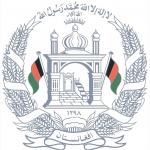United Nations Office on Drugs and Crime-UNODC
United Nations Office on Drugs and Crime (UNODC) was established in October 2002. UNODC is entrusted with the responsibility of implementing the UN International Drug Control Program. The Governing body of the UN Drug Control program is the 53-member UN Commission on Narcotic Drugs (CND), and it relies on voluntary contributions mainly from member states, for 90 percent of its budget. UNODC is headed by an Executive Director General of UNOV. UNODC and UNOV are closely associated and a few common services like Information technology are provided by UNOV through UNODC to other Organizations located at Vienna International Centre (VIC).
UNODC also functions as a Secretariat to CND and CCPCJ and supports the Secretariat of INCB.
Commission on Narcotics Drugs (CND)
The Commission on Narcotic Drugs is a functional commission of ECOSOC, which has a governing body of 53 member states who are elected for four-year terms during the organizational session of ECOSOC held in New York every year in May.
The CND is the governing body of the UN International Drug Control Program. It gives the policy directions and approves the program and budget of UNODC. The CND adopts Resolutions and takes decisions in its regular sessions and also recommends decisions and resolutions for adoption by ECOSOC and the UN General Assembly which eventually direct the work of UNODC.
The CND meets annually in a regular session for a duration ranging from five to eight days. A reconvened session is held in every alternate year for two to three days to discuss the biennial budget of the UN Drug program. The regular sessions as well as the reconvened sessions are generally held in Vienna in the first quarter and last quarter respectively.
The CND elects its bureau consisting of a Chairman, 3 Vice Chairmen, and a rapporteur, on the last day of the annual session. The bureau is responsible for the inter-sessional work of the Commission.
Commission on Crime Prevention And Criminal Justice (CCPCJ)
The UN Commission on Crime Prevention and Criminal Justice (CCPCJ) is a functional commission of ECOSOC. It formulates international policies and recommends activities in the field of crime control. It was established pursuant to a ministerial meeting held in Versailles in 1991 and was preceded by a more technically focused Committee on Crime Prevention and Control, formed in 1971 to replace an earlier expert advisory committee
The Commission offers States a forum for exchanging information and agreeing on ways and means to fight crime on a global level. It also provides substantive direction for the periodic UN Congresses, held every five years, on the Prevention of Crime Prevention and Criminal Justice.
There are 40 members of the Commission who are elected for a three years term. The retiring members are eligible for re-election and are elected during the organizational segment of the ECOSOC in May every year.
Priority areas mandated by the Council when it established the Commission in 1992 are:
- international action to combat national and transnational crime, including organized crime, economic crime, and money laundering;
- promoting the role of criminal law in protecting the environment;
- crime prevention in urban areas, including juvenile crime and violence; and
- improving the efficiency and fairness of criminal justice administration systems.
The Commission meets in Vienna, Austria annually in regular session for a period of 8 days except in the year when UN Congress is held.
The Commission formulates draft resolutions for adoption/action by the UNGA/Economic and Social Council. These resolutions eventually direct the work of the Crime program of the UNODC.
International Narcotics Control Board (INCB)
This is a quasi-judicial body of the UN which is mandated to oversee the implementation of the Treaties related to UN conventions on NDPS, specifically, UN Convention against NDPS, 1988. The INCB is a 13–member board, members of which are elected in their individual capacities and cannot hold any office of profit with any Government.
The mandate of the INCB also includes the responsibility to ensure an adequate supply of Narcotics drugs to the world community for meeting its medical and scientific needs. This is done by compiling estimates of the requirements of member states for medical and scientific needs and matching supplies to meet these requirements from traditional producers.
